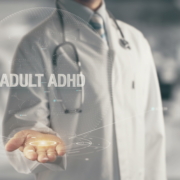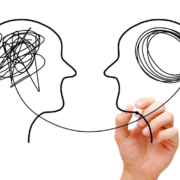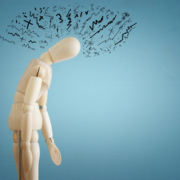Can You Develop ADHD as an Adult?
Can You Develop ADHD as an Adult?
When people think of ADHD (Attention-Deficit/Hyperactivity Disorder), they often picture young children struggling with hyperactivity and focus. However, an increasing number of adults are finding themselves facing similar symptoms. This raises the question: Can you develop ADHD as an adult? Traditionally, ADHD was considered a childhood condition, but more adults are now being diagnosed and treated. At Novel Mind & Wellness Center, we regularly work with adult patients who experience the effects of ADHD, exploring effective treatments that fit their unique needs.
ADHD Diagnosis in Adults: Understanding the Criteria
Diagnosing ADHD in adulthood is more common than previously believed. As adults encounter new challenges—such as managing work, family, and complex schedules— symptoms can intensify, prompting adults to seek help.
For adults and adolescents over 16, the diagnostic process is similar but requires only five symptoms of inattention or hyperactivity and impulsivity, rather than the six required for children. Symptoms might include difficulty staying organized, trouble focusing on tasks, and impulsive decision-making. At Novel Mind & Wellness Center, we support adults who suspect they may have ADHD through comprehensive evaluations that consider these age-adjusted diagnostic criteria.
Treatment Options for Adults with ADHD
Treatment for ADHD in adults can significantly reduce symptoms and improve quality of life. The most common approaches include:
- Medication – Stimulant medications are frequently prescribed, as they are effective in enhancing focus and reducing impulsivity in most adults with ADHD.
- Psychotherapy – Behavioral and cognitive behavioral therapies (CBT) are beneficial for helping adults manage the emotional and psychological impacts of ADHD, teaching coping strategies that improve daily functioning.
- Holistic Options – At Novel Mind & Wellness Center, we also explore alternative therapies for adults struggling with ADHD symptoms. Our NAD therapy and IV ketamine infusions, for instance, have shown promise in reducing symptoms, enhancing focus, and alleviating co-occurring mood disorders.
Effective treatment often requires a tailored, multi-faceted approach. Adults might need to try different treatment combinations before finding what works best for them. In some cases, a combination of medication, therapy, and complementary therapies can produce the most favorable results.
New Research: Can You Develop ADHD as an Adult?
Historically, ADHD in adults was thought to be a continuation of childhood ADHD, either undiagnosed or misdiagnosed in the past. However, recent research suggests the possibility of a separate, adult-onset ADHD. While not yet fully understood, this form of ADHD may develop independently of childhood symptoms, likely influenced by a mix of genetic, environmental, and neurological factors.
At Novel Mind & Wellness Center, we recognize the unique challenges that adult-onset ADHD presents. Adults facing new or intensified symptoms benefit from a thorough assessment and a personalized treatment plan that may include cutting-edge options like our NAD and ketamine infusions. These therapies can provide relief for those experiencing difficulty focusing, anxiety, or mood swings associated with ADHD, supporting overall mental wellness.
Can You Develop ADHD as an Adult?
So, can you develop ADHD as an adult? While a true diagnosis of adult-onset ADHD is complex and still under study, many adults experience ADHD symptoms that impact their lives in significant ways. At Novel Mind & Wellness Center, we’re committed to supporting adults with ADHD through comprehensive assessments and effective treatments, whether symptoms emerged in childhood or later in life.
Our innovative treatment options, including NAD therapy and ketamine infusions, complement traditional ADHD treatments, helping adults manage symptoms more effectively and live fuller, more focused lives. If you believe you might have adult ADHD, call us today for a consultation and discover how we can help you on your path to better mental health and wellness.
—
Disclaimer: The information provided in this article is for informational purposes only and should not be considered as medical advice. Each individual’s response to ketamine treatment may vary, and it is important to consult with the Novel Mind & Wellness Center to determine the most appropriate duration for your specific needs.











